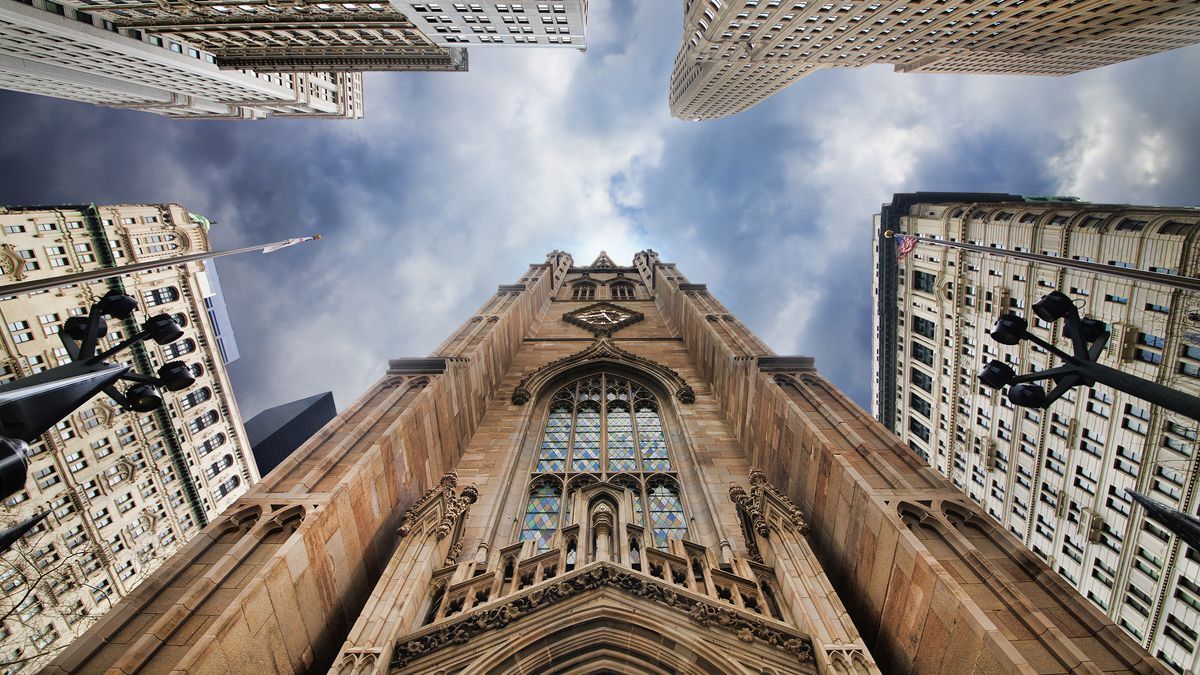
Colonial New York was a bustling hub of activity, brimming with diverse cultures and rich history. Did you know that it was originally called New Amsterdam? The Dutch first settled there in 1624, and it wasn't until 1664 that the British took over and renamed it New York. This vibrant colony played a crucial role in trade, thanks to its strategic location along the Hudson River. New York City became a melting pot where different languages, customs, and traditions mingled. From its early days as a Dutch settlement to its transformation under British rule, Colonial New York offers a fascinating glimpse into America's past. Ready to dive into some intriguing facts about this historic colony? Let's get started!
The Founding of Colonial New York
Colonial New York has a rich history filled with fascinating events and characters. Here are some intriguing facts about its founding and early days.
-
New York was originally called New Amsterdam. The Dutch established it in 1624 as a trading post and named it after Amsterdam in the Netherlands.
-
The English took over in 1664. They renamed it New York in honor of the Duke of York, who later became King James II.
-
Peter Minuit bought Manhattan for $24. In 1626, he famously purchased the island from Native Americans for goods worth 60 guilders, roughly $24 today.
-
New York was a melting pot from the start. Early settlers included Dutch, English, French, and Scandinavian immigrants, making it one of the most diverse colonies.
Life in Colonial New York
Daily life in Colonial New York was a mix of hard work and community activities. Let's explore some aspects of their everyday experiences.
-
Farming was a primary occupation. Many settlers grew crops like wheat, barley, and corn, which were essential for survival and trade.
-
Trade was vital. The colony's location made it a hub for trading goods like fur, timber, and tobacco with Europe and other colonies.
-
Homes were simple but sturdy. Most houses were made of wood or brick, with thatched roofs and small windows to keep out the cold.
-
Education was valued. Schools were established early on, with a focus on reading, writing, and arithmetic, often taught by ministers.
Governance and Laws
Colonial New York had a unique system of governance and laws that evolved over time. Here are some key points about its political landscape.
-
The Duke's Laws were the first legal code. Established in 1665, these laws covered everything from property rights to moral behavior.
-
The colony had a governor. Appointed by the English crown, the governor had significant power but was often at odds with local assemblies.
-
Religious freedom was limited. While some tolerance existed, the Anglican Church was the official religion, and other denominations faced restrictions.
-
Slavery was legal. Enslaved Africans were brought to New York to work on farms and in households, a dark chapter in its history.
Cultural and Social Life
The cultural and social life in Colonial New York was vibrant and diverse, reflecting its mix of inhabitants. Here are some highlights.
-
Festivals and fairs were common. These events brought communities together for food, music, and games, providing a break from daily routines.
-
Dutch traditions influenced local culture. Customs like Sinterklaas (Santa Claus) and foods like waffles and doughnuts became part of New York's heritage.
-
Art and literature flourished. Early New Yorkers enjoyed painting, poetry, and storytelling, with some works reflecting the colony's unique blend of cultures.
-
Clothing was practical yet stylish. Men wore breeches and coats, while women donned long dresses and bonnets, often made from locally produced fabrics.
Conflicts and Challenges
Colonial New York faced numerous conflicts and challenges, both internal and external. Here are some significant events and issues.
-
The colony experienced several wars. Conflicts like King Philip's War and the French and Indian War impacted New York's development and security.
-
Pirates were a threat. The colony's bustling ports attracted pirates, who attacked ships and disrupted trade.
-
Native American relations were complex. While some tribes traded peacefully with settlers, others resisted encroachment on their lands, leading to conflicts.
-
Economic hardships were common. Fluctuating markets, crop failures, and harsh winters made life difficult for many colonists.
Legacy of Colonial New York
The legacy of Colonial New York continues to influence the state and the nation. Here are some lasting impacts.
-
New York City became a major port. Its strategic location and bustling trade laid the foundation for its future growth as a global city.
-
Diverse population set a precedent. The colony's early diversity paved the way for New York's reputation as a melting pot of cultures.
-
Influence on American politics. Early political struggles in New York helped shape ideas about governance and individual rights that influenced the American Revolution.
Colonial New York's Legacy
Colonial New York's history is packed with fascinating stories and facts. From its beginnings as New Amsterdam to becoming a bustling hub of trade, it played a crucial role in shaping America. The diverse population, including Dutch, English, and various other settlers, created a melting pot of cultures that influenced the city's development. Key events like the establishment of the first newspaper and the construction of iconic buildings laid the groundwork for modern New York City. Understanding these historical tidbits gives us a deeper appreciation for the city's rich heritage. Whether you're a history buff or just curious, these facts offer a glimpse into the past that continues to impact the present. So next time you walk through New York's streets, remember the colonial roots that helped build this incredible metropolis.
Was this page helpful?
Our commitment to delivering trustworthy and engaging content is at the heart of what we do. Each fact on our site is contributed by real users like you, bringing a wealth of diverse insights and information. To ensure the highest standards of accuracy and reliability, our dedicated editors meticulously review each submission. This process guarantees that the facts we share are not only fascinating but also credible. Trust in our commitment to quality and authenticity as you explore and learn with us.


